- Home
- A. S. Byatt
A Whistling Woman Page 2
A Whistling Woman Read online
Page 2
They talked into the night. Artegall listened courteously to their tales of grief and exile, and only then did he return to his own quest, and ask whether the king in Veralden was his kinsman, Hamraskir Kveld-Ulf. They said they believed so. They dared not approach the city. “But we will set you on your way,” said Hvanvit, “we will carry you over the wasteland and bring food for you. For we are not the most terrible danger you will meet on this journey—more terrible still are the ancient enemies, cold and dark and hunger. In all the time we have circled and swept over this land we have seen no one come across safely. We could show you bones, and men preserved in ice as though they slept, and proud horses, and sledge-dogs. When we tried to speak to them, our song proved mortal to their ears, until you came. Maybe you will speak of us, and our wanderings, to Hamraskir Kveld-Ulf when you come to him, if indeed you come there.”
And Artegall, daring, asked Hvanvit if she desired to be a woman again. And she said, no, she could never forgo the wind in the wings, and the free racing through the stormskies. But she would like to be welcome in Veralden, to drink wine again, with her kinsfolk.
So the next day, Dol Throstle saw shapes flying arrowswift, high against the iron clouds, one, two, three, five, eight, thirteen, and two were burdened and flying lower. She saw the long stretched necks, and the piercing beaks, and took a brand from her fire by the Last Tree, and prepared to lose her life hard, and make some of these creatures pay dearly for her. But Artegall’s voice came out of the air, telling her not to hurt the Whistlers, for they were friends, and would help them across the badlands.
And so they journeyed, carried by the flock of bird-women, who shared the burden, murmuring and hissing to each other. They crossed the bitter scrub and icy marshes, sleeping in caverns that opened underground. Dol Throstle did not trust the Whistlers, though Artegall held long conversations with Hvanvit. Dol thought they were edgy, angry, nervous creatures, ready to take o fence, ready to wheel away capriciously and leave the humans to their own devices. Although their dark eyes had silky lashes and arched brows, she could not endure their inhuman stare. She felt they were judging her, by rules and ideas she knew nothing of. They might, for no reason she would know, decide to stab and deafen, as they had decided to help and protect. She saw Hvanvit’s eyes follow Artegall, as he went to and fro, and Hvanvit’s sisters’ eyes, in their graceful bird-heads, watched Hvanvit. But Dol could not see what, or if, they were thinking.
After many days of this laborious progress, they saw, wavering in the cold mist, the distant shoulders and icy head of a great peak, thrusting up from the ground. They saw, as they flew closer, tall stone markers, and then carved gateposts, defining a scarce visible road, winding in between the shoulder hills. The Whistlers set down the three travellers, stretching and flapping their wings, making small cries of what might have been relief.
“We can go no further,” said Hvanvit. “On pain of death. But you may go into the mountain. Watch your backs, and speak courteously to any creature you meet, from worm to wolf, for nothing there is simply what it appears to be.”
Then the three travellers thanked the Whistlers, and Artegall would have embraced Hvanvit, but she drew back, curving her long neck.
“I shall not forget you,” said Artegall. “Ever.”
“We shall see,” said Hvanvit.
The gatepost was carved with an ascending spiral of forms, wolf and dragon, snake and albatross, hare and snail, and strangest of all in that cold place, butterflies on branches. They went in, hurrying a little, for night was falling. Behind them, the flock of Whistlers were like arrows in the dusk, and then like a swarm of bees, and then gone.
As they went on into the mountain pass, the night thickened, and they noticed, on the mountainside, little lights appearing and vanishing, like eyes, or like lanterns with the shutters flicked open and shut, watching or signalling. It was like walking willingly into a trap, Mark thought, clutching his knife-hilt, stepping soundlessly, as the mountainside rose sheer and black before them, and the light of the stars above them narrowed and diminished. For they were going down, in a looping spiral, into the dark heart of the mountain. After a long time they rested, huddled together, wrapped in their skin tents, and dozed fitfully.
They were awakened by the crow of a cockerel, clear, repeated and unafraid, saluting an invisible sunrise. Then they saw the thin pale line of grey-gold dawn, across the rim of the cleft. And as the sunlight spread out, they saw that though behind and around them was an icy pass of black basalt, in front was a white city wall, closing the valley, with battlements, on which black cocks strutted and crowed. There were human faces between the battlements. There was a huge barred gate, made of treetrunks, with bright hinges and great locks. Now Artegall, at the outset of his journey, had imagined crying proudly
“I am Artegall, son of Barbadoria, prince of Harena, and the Southern Isles, come to see my kinsman.”
But he said
“We are three weary travellers in need of shelter, if you will take us in.”
And the cocks crowed in a wild chorus, and the great door rolled back and Artegall, Mark and Dol Throstle, three lean, tattered, bundled figures, bearing the sleeping Dracosilex, walked into the unimaginable city.
Inside, time and space were not the same. There were wide white streets, and houses with the windows flung open, and great fountains playing, and flowers, scarlet and gold, purple and blue, tumbling from the balconies, and trees spreading leafy branches in what, when they looked up amazed, was summer sunlight. And Dracosilex, who had been no more than a burdensome stone since the Bale Fires, gave a start of fierce life, spread his wings and tail, claws and nostrils, blinked his scaly eyes and stepped out of Mark’s pack lightly to the ground, where he began a sinuous leaping and prancing of which they would not have thought him capable. They walked through many fair streets with a crowd gathering behind them, but not approaching. Dol Throstle felt constricted in her furs, and after a time stopped to discard her hat, and her hood, and then her heavy coat, and the young men did likewise. They went on more lightly, their cold skins drinking sunlight, into a great square, with a pillared hall, a circle of fountains, and swallows darting. On the steps of the hall stood a tall figure, the largest man Artegall had ever seen, with a huge sable beard, and black curls like heaped grapes, and black eyes under branching black brows. His black robe was embroidered with green and gold snaking vines or climbing snakes, with jewelled flowers and inky-blue glittering stars, with moons and suns and golden apples. He wore also a heavy sword in a battered sheath. And he came down the steps and took Artegall in his arms, and then Mark, and then, in an embrace at once a bear-hug and full of respect, Dol Throstle.
“Welcome,” he said. “Welcome, Artegall, Mark, Mistress Dol. You have been waited for. I am Hamraskir Kveld-Ulf, and you are safe and at home in this city. First you must wash, and then you must eat, and then you will tell me your adventures.” He repeated, “You are safe in this city.”
And for the first time since they set out, fear left the cave in the back of their minds, and they felt that what he said was true. They were safe in his city.
“And that,” said Agatha to the assembled listeners, “is the end of the story.”
There was an appalled silence.
Leo said “The end?”
“The end,” said Agatha.
It was the summer of 1968. The telling of the story had begun two years ago, and had continued, almost every Sunday, until that day. It was long and intricate and had seemed endless. The first listeners had been Agatha’s daughter, Saskia, now eight, and Leo, the son of Frederica Potter, who shared Agatha’s house in Hamelin Square, in Kennington. Then the two Agyepong children, from across the Square, had become regulars—they were Clement, and Thano (short for Athanasius). Frederica herself always came, and most of the time Daniel Orton came too. Daniel was a priest (without any uniform) and Frederica’s brother-in-law. He was a professional Listener, employed by a telephone-answering service for
the desperate, in the crypt of St. Simeon’s Church, in the City. The last two members of the audience were the Ottokar twins, John, who wrote computer languages, and Paul, who preferred to be known as Zag, and was the lead-singer of a group known as Zag and the Syzygy (pronounced ziggy) Zy-goats. All these people were both shocked and affronted by Agatha’s brutal exercise of narrative power. She closed her notebook; her face wore its usual mild, composed look.
Leo’s red eyebrows knit in a ferocious frown.
“That isn’t the end. We don’t know everything. We don’t know what happened to the Whistlers. We don’t know what his uncle was like. We don’t know where his father is. We’ve waited and waited and waited to know these things, and now you say, now you say ...”
Saskia stared, and opened her mouth. No sound came out, but her pale skin purpled and dappled. Then the howl came, primitive and outraged. Tears spurted out between closed eyelids, bounced on her cheeks. Agatha put her hand on her shoulder. Saskia flung away, and burrowed her head into Daniel, who closed his large hands over her.
“Why?” asked Thano.
“What did you stop there for?” asked Clement.
There was no satisfaction in the end of the story. It was as though they had all been stabbed. Agatha looked shaken by their vehemence; but closed her mouth, and closed her hands on the book.
“That is where I always meant it to end,” she said. Her voice was not completely steady.
“Tea,” said Daniel, making his way into the kitchen. Putting on the kettle, he heard Leo’s clear voice, absolute as his mother’s.
“But it wasn’t an end, it wasn’t a real end—”
“What’s a real end?” said Frederica. “The end is always the most unreal bit ...”
“No, no, no,” said Leo above Saskia’s sobs, “There are good ends and this isn’t one, this isn’t an end ...”
They were not exactly a family, the two women and their children, who were both in the same class at the William Blake Primary School. They had come together for convenience, after Frederica’s flight from her husband and hard-fought divorce. Both were highfliers, although Agatha was the more obviously successful, rising fast in the hierarchy of the Civil Service, a woman with a solid place in the world, a secretary, a telephone, colleagues, an office. Her private life was secret. No one had ever been told who Saskia’s father was, although Agatha occasionally remarked wryly that only in the British Civil Service had a woman a right to three illegitimate children before questions were asked. There were no signs of any more children, and she was unnaturally uncommunicative about her personal life. This was good for Frederica, who in the company of another kind of woman might have talked too much about her own problems. Or felt competitive. But Agatha’s reticence and dryness brought out the best in her. They supported each other in practical ways. Leo went home to his father’s country house on visits. But the two women were able to help each other with childcare, with shopping, with book buying, with a new kind of necessary efficiency. And out of that sprang a kind of new and different domestic comfort. Leo and Saskia were friends, and quarrelled much less than they would have done if they were siblings. Agatha and Frederica were calmer together than if they had been sisters. Daniel, who had been married to Frederica’s dead sister, Stephanie, thought often about this, but did not know whether Frederica did. Agatha never appeared to see any family she may have had. It all worked much better than they had expected or hoped it would.
Later, Frederica thought, as she put Leo to bed, about real endings. What endings made you cry with happiness? In her own case, reunions of parents and children, separated by danger. The ending of Peter Pan, when the children flew back into the nursery and the real world. The climax of We Didn’t Mean to Go to Sea when Daddy was seen unexpectedly in the Dutch harbour, on the other side of the stormy water. She poured water down her son’s solid spine, and put her nose in his damp, flaming hair, and thought of Saskia, who had as good as no father—none had been mentioned, no name, no history, nothing. Even a discovered uncle, Frederica thought, appeared to be too much for Agatha. But what would become of the Sundays? They would have to resort to reading. She herself was no storyteller. She wondered if Agatha had thought of publishing her tale. She might try to show it to Rupert Parrott. A publisher might even induce Agatha to take the tale further, perhaps in a sequel ...
Endings. Frederica sat and waited for her lover, and wondered what the end of the affair would be. She had begun to think that there was always only an unreal moment’s grace between the beginning of a love affair (the phrase was already old-fashioned, but she had a growing distaste for the word relationship) and this steady self-questioning about how and why and when it would end. The moment’s grace was the moment of being “in love,” which brought with it a clear, driven purposefulness, an impersonal directed energy that was desired in its absence, and frightening in its presence. (Not least because at thirty-three a woman knew that the dreadful belief that it was possible to prolong this state forever was the most tormenting aspect of the illusion.) For days, or weeks, or months, as the case may be, Frederica thought, putting on a short white cotton nightdress, brushing her red hair, we do nothing without the accompanying image of the loved face, the imaginary limbs, and then, one day, we notice it’s gone, there is no more, love is over. And what kills it? Often enough (she put out all the lights except the bedside lamp, she turned down the cover) a failure in oneself, or in the beloved, to conform to an ideal pattern put in the mind long before these particular two have met. I want a man who is stronger than I am, who will contain my anger and my folly and make me feel safe. He—John Ottokar—wishes to be such a strong man, but somehow we have arrived at a point where he needs me to reassure and to comfort him, and if I do this, it saps what I think of as Love, which is diminished to affection. (She stopped in front of the mirror and looked at her bony quick features, twisted her mouth in a grimace, touched her bright hair.) It is a dance. It has a formal pattern that friendships don’t. It is a made-up story, Love. Something else, fiercer and harsher and hotter (Life?) needs us to believe in Love for purposes of its own, which are not ours. And we collude. She remembered playing the young Elizabeth I in the garden, the virgin queen whose power was the recognition that separateness and solitude were safety.
All a bit metaphysical, Frederica thought, waiting for the tap on the area window, from the basement steps down to the flat where she lived. All a defence against him not coming, which we always fear, even if really we are indifferent as to whether he comes or not.
But a month ago, six months ago, I wasn’t thinking in language about what (if anything) is love. I was thinking about his mouth, and his arse, and his hands. People like me, who think too much, are so glad, so grateful, at least at first, to be overcome by thoughts of lips, hands and eyes.
And when the tap sounded, there was the usual tingle of terror as she went to look out. There was the mass of pale hair, the wide face, the tall body, the smile against glass.
The problem was, was this recognisable person a lover or an invader? With glass between, Frederica could not tell John from Paul. Sometimes she could not tell them apart without glass between, for brief moments, and sometimes, when Paul was clever, for longer. Paul made a third, visible or invisible, at their meetings, Paul dogged their footsteps when they went out and came in, the thought of Paul—because Paul chose that it should be so—mingled with the scent of sex in the bed, and swarmed in the quietness after.
They had secret signs, which they had instituted without ever discussing them, by which Frederica would know John was John and not Paul. He breathed on the glass now, and wrote in the mist a capital L, which Frederica knew was for Leo, not for Love.
It was probably only a matter of time before Paul, who had a cat-like capacity to creep up, detected this too, peering down through the railings. She opened the door, and John and the night air came in, and he opened his arms. And immediately she knew that he was someone, not her idea of her own lover, no
r her idea of John Ottokar, but a complicated troubled breathing man, with ruffled hair and an erection. She closed the blind and with four quick hands they undressed him, and tumbled into the bed.
Later, they talked. Most of their talk was in darkness, because of John’s work, and even more, because Frederica was fastidious about including him often, or much, in Leo’s life. This was for all their sakes. Disaster (possibly) lurked if Leo became too attached, or too opposed, to John. It lurked if John found Leo a nuisance or a responsibility, it lurked if she herself didn’t like the way the man spoke to the boy.
They had reached the stage (a beginning of an end?) where much of what they said was repetition of what had been said before. John was a man of few words, diminishing to no words, in any case. His eloquence was an eloquence of finger-tips and tongue. And the new languages of the huge computers also, perhaps, Fortran and COBOL, but Frederica was mathematically illiterate.
This time, John said something new. He said that he had been offered a post in the University of North Yorkshire. Writing computer programs for the scientists. Running his own computer department.
Frederica said “But that would mean living up there.”
“It would.”
Panic rose in her.
“When would you begin?” she asked, with exaggerated practical calm.
“I’d need to give three months’ notice. They want someone right away.”
A primitive Frederica thought, he doesn’t want me any more, he wants to leave me, he wants to end it. And her idea of his idea of an end made an end a disaster.
“We shan’t see each other—” her reasonable voice said. He said simultaneously—it was not clear he heard her—
“It’s a real step forward. An enormous amount more responsibility and space to have ideas of my own ...”

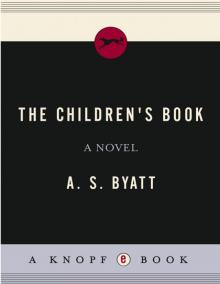 The Children's Book
The Children's Book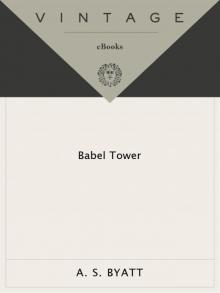 Babel Tower
Babel Tower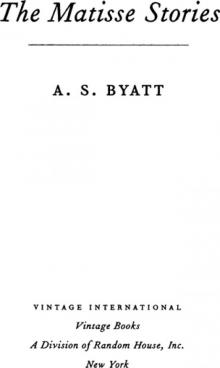 The Matisse Stories
The Matisse Stories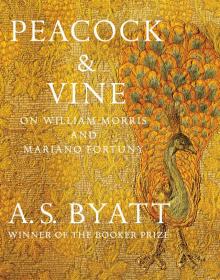 Peacock & Vine: On William Morris and Mariano Fortuny
Peacock & Vine: On William Morris and Mariano Fortuny Elementals: Stories of Fire and Ice
Elementals: Stories of Fire and Ice Sugar and Other Stories
Sugar and Other Stories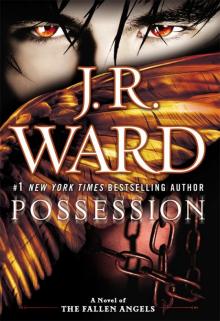 Possession
Possession Little Black Book of Stories
Little Black Book of Stories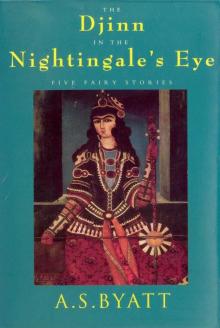 The Djinn in the Nightingale's Eye
The Djinn in the Nightingale's Eye The Virgin in the Garden
The Virgin in the Garden The Game
The Game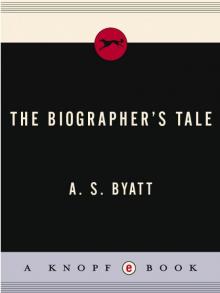 The Biographer's Tale
The Biographer's Tale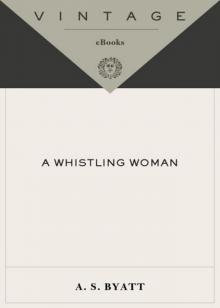 A Whistling Woman
A Whistling Woman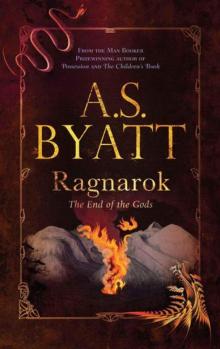 Ragnarok
Ragnarok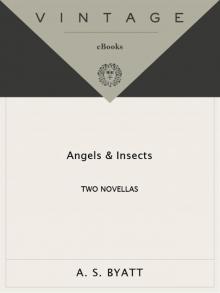 Angels & Insects: Two Novellas
Angels & Insects: Two Novellas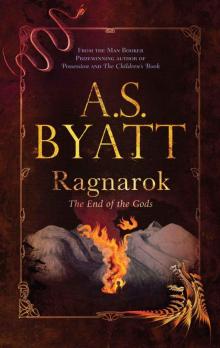 Ragnarok: the End of the Gods (Myths)
Ragnarok: the End of the Gods (Myths)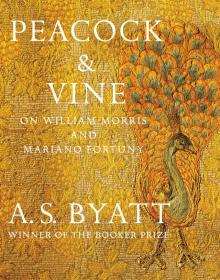 Peacock & Vine
Peacock & Vine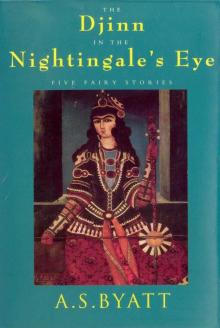 The Djinn in the Nightingale's Eye (Vintage International)
The Djinn in the Nightingale's Eye (Vintage International)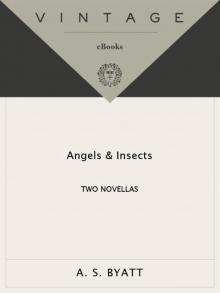 Angels and Insects
Angels and Insects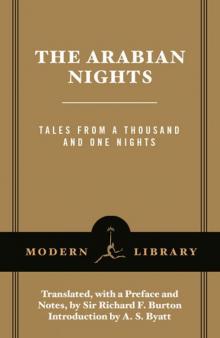 The Arabian Nights: Tales from a Thousand and One Nights (Modern Library Classics)
The Arabian Nights: Tales from a Thousand and One Nights (Modern Library Classics) Elementals
Elementals